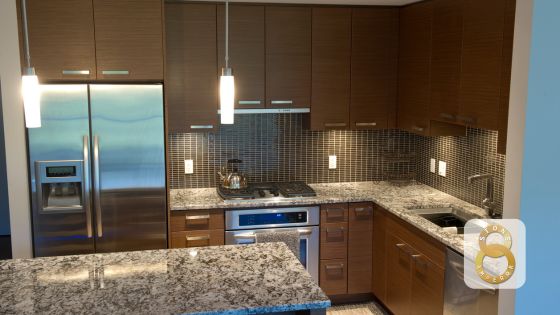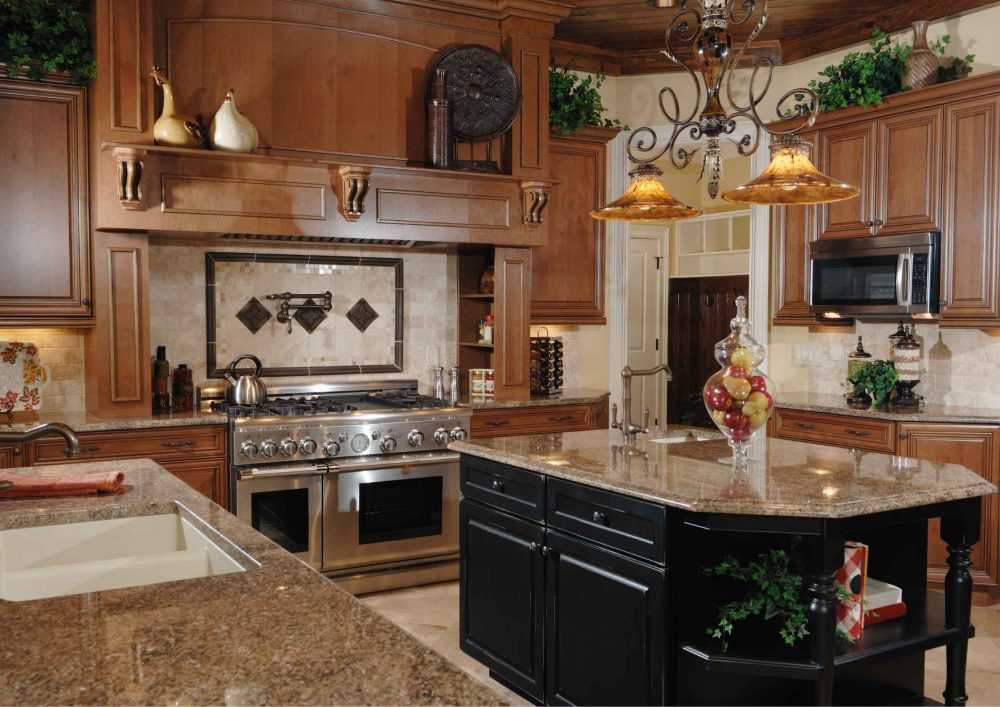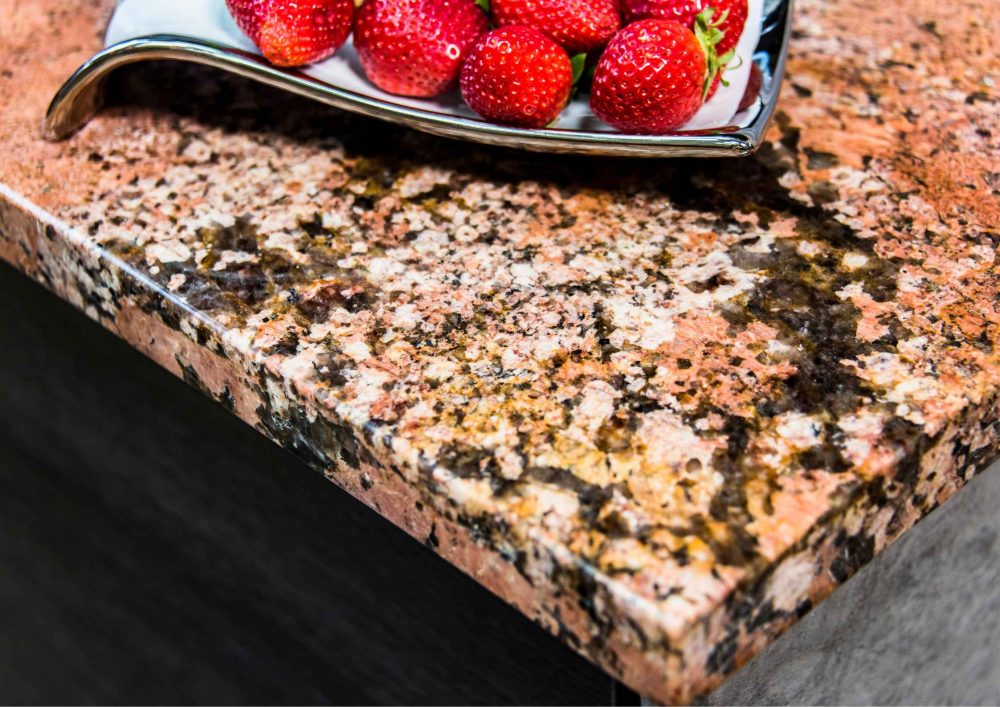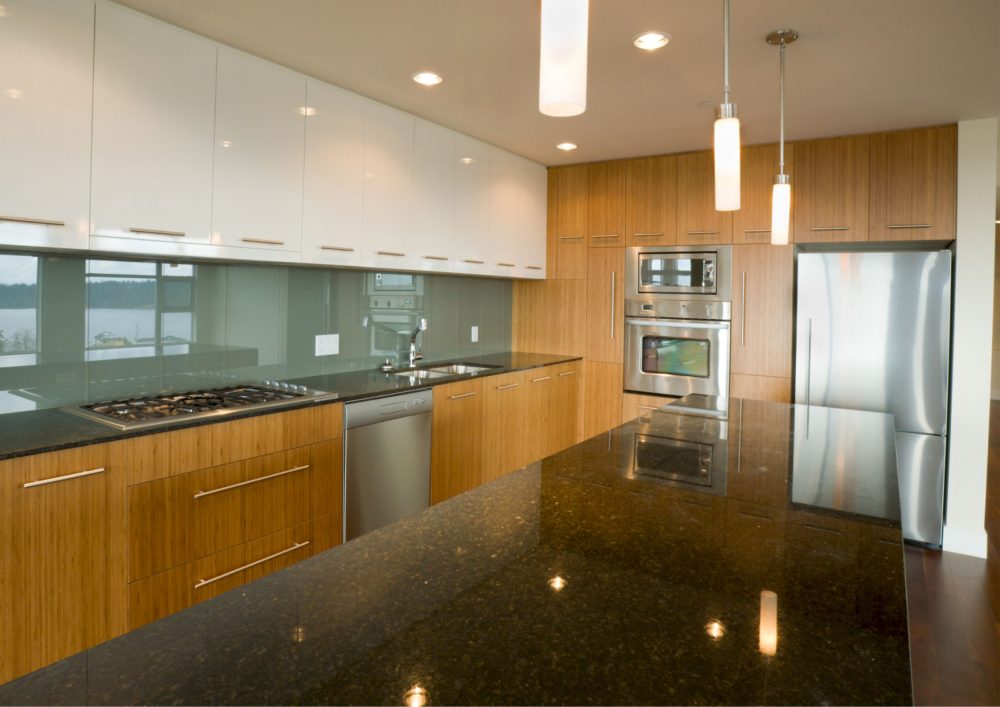
Granite is one of the most common kitchen countertops. Due to their elegant appearance and durability, granite kitchen countertops have always been a popular choice for many homeowners. It is a beautiful addition to any home.
Although granite kitchen countertops can add value to your home, they require regular care to maintain their beauty. Regular cleaning and maintenance are vital to prevent stains, scratches, and damage that can occur over time.
Proper cleaning and maintenance are essential to keep your granite kitchen countertops their best look and ensure they stand the test of time. In this guide, we will provide some informative tips on protecting your granite kitchen countertops to ensure they stay pristine for years to come.
Understanding Granite Kitchen Countertop

The mesmerizing patterns found in granite result from the rock’s interlocking crystals. The various colors and patterns that you can find in each slab give homeowners more choices, which is why it gained popularity among many people.
High-quality sealants are usually applied on granite countertops to protect the stone. Depending on usage, you may need to reseal your granite kitchen countertop every 1 to 3 years. Some may even required to seal once or twice a year.
Clean Your Granite Kitchen Countertops On A Daily Basis

Your daily cleaning routine doesn’t need to be complicated. By adopting a simple cleaning routine, you can preserve the elegance of your granite countertops for years to come.
Here are some simple yet effective steps to clean your granite countertops daily. First, prepare the necessities, including mild dish soap, warm water, and a soft microfiber cloth or sponge. Simply mix the water and soap in a spray bottle or a bucket. Apply the soap water onto the surface and clean it. Ensure you rinse your cloth with clean water in between to prevent pushing the suds and grime around.
When cleaning, ensure you cover all areas, including corners and edges. Thoroughly dry the countertop with a clean, dry microfiber cloth. This prevents water spots in the stone, which may be hard to deal with.
Dealing With Stains On Granite Kitchen Countertops

It is best to wipe up spills promptly; using things like coasters can help prevent stains. But if staining really happens, baking soda and hydrogen peroxide can deal with most stains on granite kitchen countertops.
The mixture you need depends on the stains on your countertop. Create a paste by mixing baking soda and water for a greasy stain. You must mix baking soda and hydrogen peroxide to clean water-based stains.
After making the paste, apply it to the stain and let it sit for a few hours before gently scrubbing and rinsing. Remember to use a damp cloth to remove the residue. For deep scratches, you may need to seek professional help.
Products To Avoid Using On Granite Kitchen Countertops

Same with any other stone countertop, you want to avoid acidic cleaners, such as vinegar, lemon, or citrus-based cleaners. These cleaners can erode the sealant and damage the granite’s surface over time, causing your countertop to look dull.
You should also avoid abrasive cleaners or scouring pads, as they can scratch the granite’s finish and dull its natural shine. Bleach or harsh chemicals are products you also want to avoid. It can weaken the sealant and cause discoloration or etching on the surface.
If you consider using other cleaning products than dish soap and water, you may consult professionals or read the manufacturer’s product recommendation. Read through the instructions of the products on how to clean your granite countertops, or you will risk damaging your countertop surface.
Maintain The Sealant On Granite Countertop

The frequency of sealing depends on the type of sealant used and the porosity of the granite. But if you are unsure when to reseal, you may leave a drop of water on an area of your countertop for 15 minutes. If the water gets absorbed or a spot remains after you wipe, it is time to reseal your countertop.
There are various types of sealants in the market. You can check with the manufacturer and installer how often to reseal your countertop and the process.
Protect your Granite Kitchen Countertops From Extreme Heat

Placing hot pots, pans, or baking sheets directly on the granite surface can cause damage. Consider using trivets and hot pads as a barrier between cookware and granite surfaces. They help distribute the heat evenly, preventing direct contact that can cause thermal shock.
You can also let the hot cookware cool down for a few minutes on the stove before placing it on the granite countertop. Gradual cooling helps prevent sudden temperature changes that can lead to damage.
